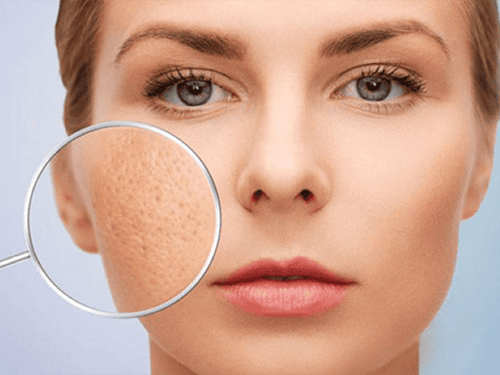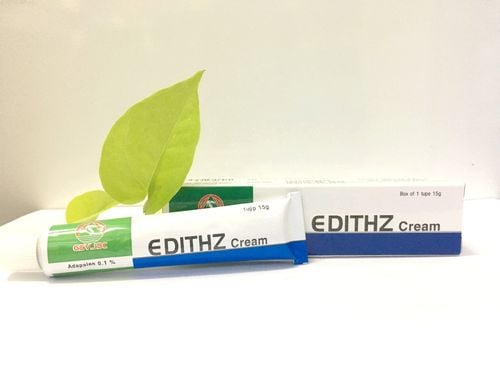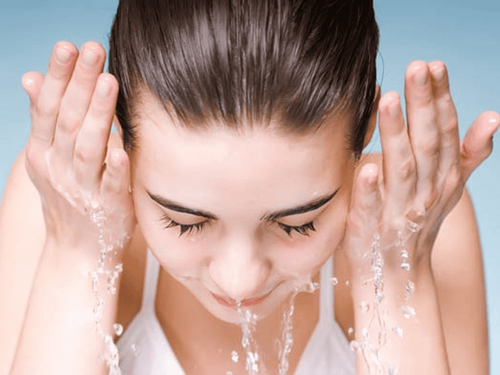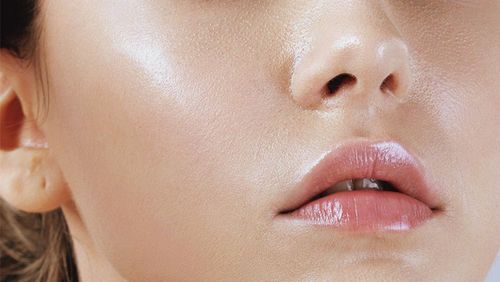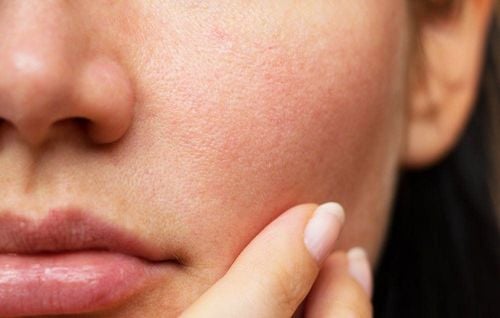This is an automatically translated article.
Oil (sebum) is a waxy substance produced by the body to protect and moisturize the skin. However, if the body produces too much oil, it will make the skin greasy, clog pores and produce acne. Therefore, you need to control excess oil on your face with proper skin care to minimize the risk of skin diseases.
1. Wash your face properly
Washing your face twice daily in the morning and at night is the most effective way to control oily skin. Use a gentle cleanser for your skin, and avoid harsh cleansers that can stimulate the skin to increase oil production. After washing your face, dry your face with a soft towel, do not use too hard towels because they will cause friction with the skin, stimulating the skin to produce more oil.
What should I do if I have used a facial cleanser but my skin is oily? If regular cleansers don't reduce shine, try products with acidic ingredients like benzoyl peroxide, salicylic acid, glycolic acid, or beta-hydroxy acid. These products are often used for facials with acne, but they are also good for oily skin. Some ingredients in the product may cause skin irritation, so please apply on a small area of skin before applying to the entire face. Buy a small tube to try, if it works well, buy a large tube. Often you have to try many products before you find the right cleanser for you.
In addition, wash your face with warm water, warm water helps to open up the pores, thereby helping the cleanser to clean more deeply and effectively. Do not use water that is too hot because too much heat can irritate the skin.
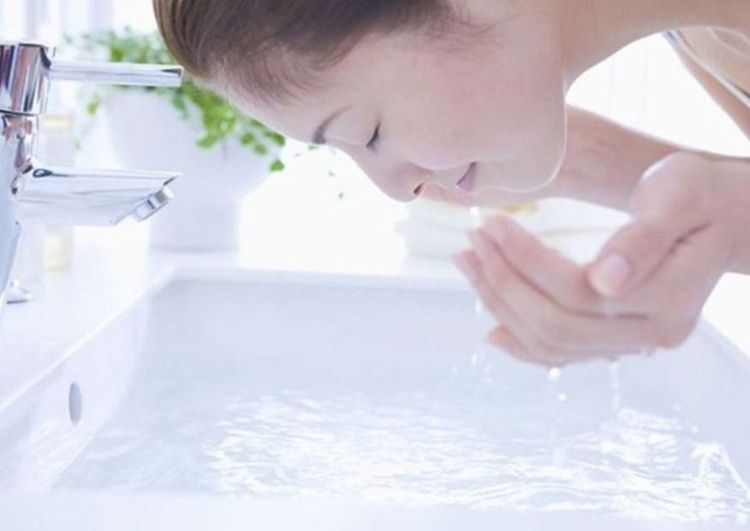
Rửa mặt bằng nước ấm sẽ giúp giãn nở lỗ chân lông
2. Use toner
Firming toners tend to irritate the skin and can cause the skin to produce more oil. Therefore, dermatologists recommend that people with oily skin only use toner in the T-zone including forehead, nose and chin, and avoid toners for dry skin areas.
Theoretically, some people will have dry skin, some people have oily skin, but in reality, most people have combination skin, oily in some parts of the face and dry in others. .
3. Medicated pads
Treatment pads containing salicylic acid, glycolic acid or other acidic ingredients that help reduce excess oil are a useful option for people with oily skin, especially oily skin with acne. You can keep these treatment pads in your purse, and use them anytime your skin feels greasy.
4. Use oil blotting paper
When you go to school or work but your skin is oily, what should you do? Oil blotting papers are an effective option, helping to remove excess oil without drying out the skin. This is a convenient and easy to use product. When you feel oily skin, you just need to apply oil blotting paper to oily areas such as forehead, nose, chin for 15-20 seconds to absorb oil. Do not use paper rubbing on the skin because it is less effective.
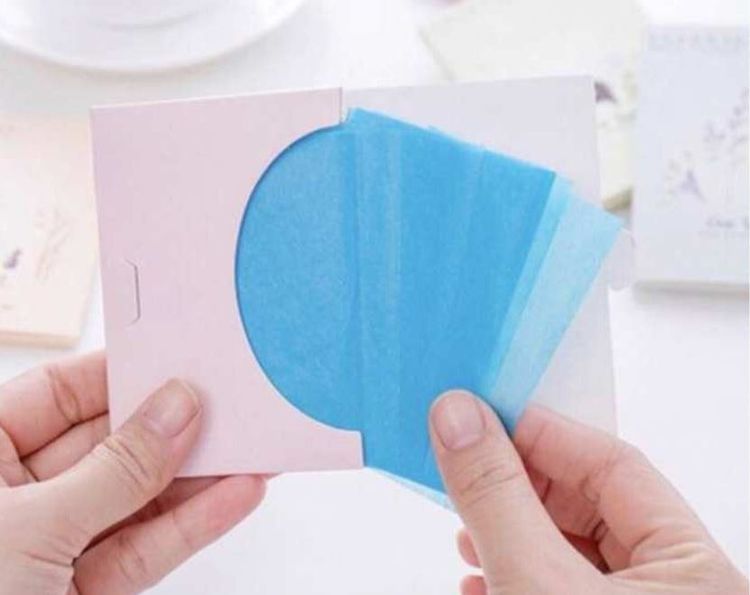
Sử dụng giấy thấm dầu là lựa chọn cứu cánh cho chị em da dầu
5. Apply a clay mask
Clay mask helps to absorb sebum and clean pores, useful for oily skin with acne. However, if used too often, it can cause dry skin. Therefore, clay masks should only be used occasionally in areas of oily skin.
6. Use moisturizer
Oily skin need moisturizing? People with oily skin often do not use moisturizer because they are afraid that the cream will clog pores and the skin will become greasy. However this is not correct. Oily skin does not mean it has enough water or moisture. You need to use a moisturizer to hydrate your skin. Choose an oil-free gel, lotion, or emulsion formula.
7. Use an oil-free sunscreen
Regular sunscreens are not suitable for oily skin because they are often quite thick and can clog pores, increasing the risk of acne. If you have oily skin, you should choose a sunscreen on the label that says “No sebum” (non-greasy), “Oil free” (oil-free), or a water-based, gel- or spray-on sunscreen.

Sử dụng kem chống nắng không dầu phù hợp với người da dầu
8. Flexibility in skin care regimen
The skin's oil production is affected by many factors such as hormones, mood, weather,... Therefore, oil secretion on the skin is not fixed but can change seasonally, weekly, even even change every day. Some people only produce more oil in the summer when they sweat, and the rest of the year their skin is completely normal. Therefore, understanding the changes of the skin to adjust the care regimen is extremely necessary. You should only use cleanser products containing beta-hydroxy acid or glycolic acid at times when the skin is too oily, oily skin has acne without using in other times. Proper use of oil-control products helps to avoid dry skin.
9. See a dermatologist
If over-the-counter cosmetics aren't enough to help you control oily skin, see your doctor for a more in-depth treatment. Treatments can be used such as laser treatment, chemical peels, treatment creams with tretinoin, adapalene or tazarotene ingredients, etc. These cosmetics help to tighten pores and reduce oil secretion. However, you should only use these creams when prescribed by your doctor, on areas with oily skin.
Did you know, oil production is a normal part of healthy skin and people with naturally oily skin often have fewer wrinkles and healthier skin. Removing excess oil from the skin is necessary, but don't try to control excessive skin oil secretion. Maintaining a moderate amount of oil is necessary for the skin to naturally fight aging.
Vinmec International General Hospital is the address for examination, treatment and prevention of diseases, including Dermatology. When performing the examination process at Vinmec, customers will be welcomed and used modern facilities and equipment along with perfect medical services under the guidance and advice of experts. Good doctors, well-trained both at home and abroad.
Customers can directly go to Vinmec Health system nationwide to visit or contact the hotline here for support.
Reference source: webmd.com




